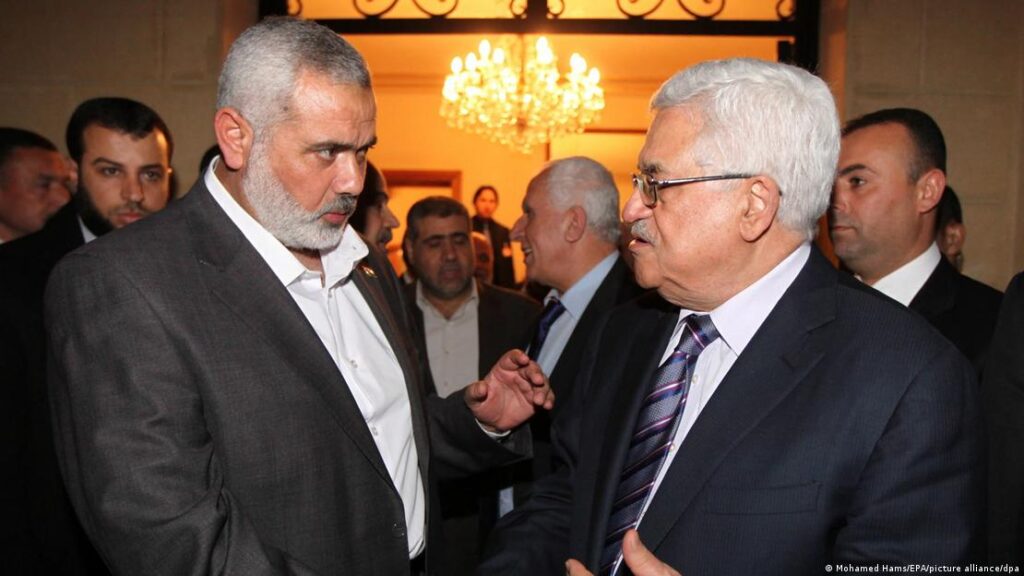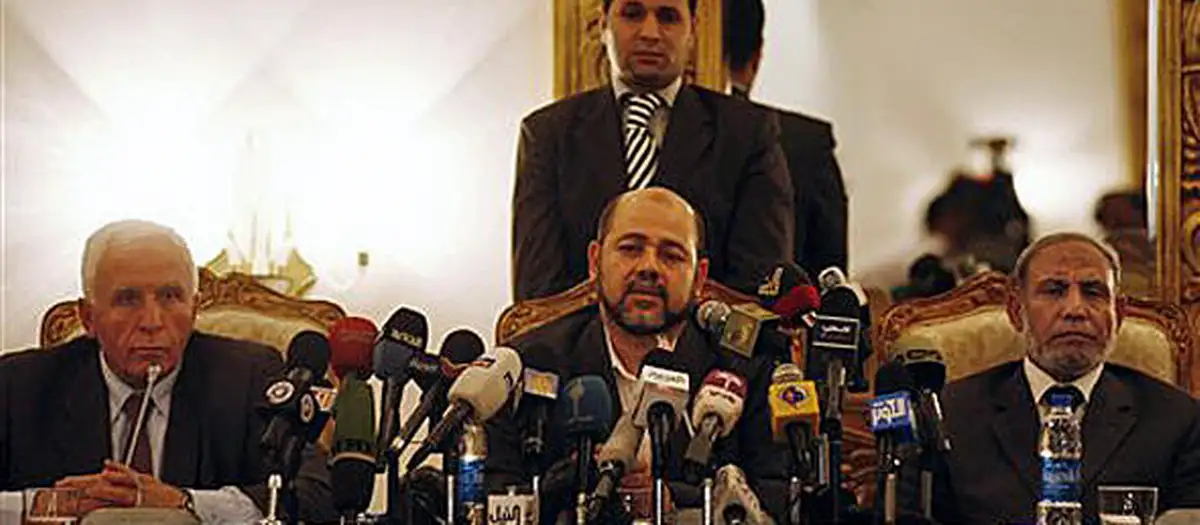Moscow will host a meeting between representatives of Hamas, Palestinian Islamic Jihad and the PLO. Experts believe that, with this event, Putin wants to show that he has geopolitical influence.
This week, representatives of various Palestinian groups will travel to Moscow for talks on the war between Israel and Hamas and other Middle Eastern topics in what is being called an “inter-Palestinian dialog”.
Russia’s deputy foreign minister, Mikhail Bogdanov, told Russian state news agency Tass that 12 to 14 organizations will take part in the conference, which will begin on Thursday (29/02) and last two to three days.
This includes representatives of Hamas and Palestinian Islamic Jihad, two organizations considered terrorist by the European Union and the United States, and moderate groups such as Fatah, the organization that administers the occupied West Bank, and the Palestine Liberation Organization (PLO), which is the broadest association of Palestinian groups.
These various groups take very different positions on topics such as the recognition of the State of Israel. The PLO, led by Fatah, recognized Israel in 1993, partly in exchange for a possible Palestinian state. Hamas has rejected this for years, although in its 2017 charter it agrees to a Palestinian state within the 1967 boundaries, even without explicitly recognizing Israel. Hamas, like Palestinian Islamic Jihad, is not part of the PLO.
There have also been acts of violence between the groups. Hamas and Fatah are rivals. After winning the elections in the Gaza Strip in 2006, Hamas was unable to reach a power-sharing agreement with Fatah, and fighting broke out. Fatah eventually pulled out of the Gaza Strip, leaving Hamas in charge, and today administers the West Bank; its governing authority there is known as the Palestinian Authority (PA).
“Dialogue for dialogue’s sake”
This is not the first time that a more unified Palestinian front has been discussed. As Russian Middle East expert Ruslan Suleymanov points out, there have been mediations between the different groups before, but they were never successful.
In the current case, “Russia has no roadmap for the Palestinian case, especially for the Gaza Strip, as this would require mediation functions and good contacts with both Israel and the Hamas paramilitary wing in Gaza,” said Suleymanov.
Given this, he believes that Moscow’s main objectives are to show that it has some influence over the Palestinian factions and, with an eye on the presidential election, that it has some geopolitical influence. Russia will elect a new president in mid-March. There is no doubt that the incumbent, Vladimir Putin, will win. “It’s really just about dialog for dialog’s sake,” Suleymanov added.
This opinion is shared by expert Hugh Lovatt, from the European Council on Foreign Relations. “This Russian summit is a way of showing that Russia has the diplomatic capacity to play a practical role in supporting Palestinian national unity,” he says. However, previous talks in Moscow, Algiers and Cairo “failed to clinch a lasting reconciliation agreement between the rivals”.

Palestinian fragmentation
“The disagreements between the Palestinian groups include major political differences relating to the peace process and the national liberation strategy, as well as technical issues in terms of how to bring the institutions of the Palestinian Authority back to Gaza,” says Lovatt.
Hamas, which is classified as a terrorist organization by Germany, the European Union and the United States, has ruled Gaza since 2007. Any future, post-war scenario that brings the Palestinian Authority back to Gaza and integrates Hamas politically into the occupied West Bank would have to be based on some form of understanding between Hamas and the PA, notes Lovatt.
For former Palestinian Prime Minister Mohammad Shtayyeh, this is a possibility. At the beginning of February, while still in office, he said on the margins of the Munich Security Conference that Hamas was an integral part of the Palestinian political arena. “They need to join our political agenda. Our basis is very clear: two states on the 1967 borders, by peaceful means. The Palestinians need to be under one umbrella,” he said.
In practice, this is not the case. Several countries have already declared that Hamas should not be allowed to play a role in governance after the end of the conflict. Israel, in particular, is opposed to this. It is also difficult to know how Hamas’ radical position on recognizing Israel could be reconciled with that of the PLO, which has already recognized Israel.
For Russia, even if the meeting has no practical results, the continuation of Palestinian dissent would not necessarily be a negative outcome. The meeting would nevertheless help consolidate Russia’s future role in the Middle East.
Russia in the Middle East
For many years, Russia has been able to maintain close ties with Israel while also maintaining good relations with one of Israel’s biggest regional adversaries, Iran. Relations deteriorated after Russia’s invasion of Ukraine in February 2022, when Israeli Prime Minister Benjamin Netanyahu showed no support for the Russian invasion, and thousands of Russians and Ukrainians fled to Israel.
Suleymanov analyzes that Russia cannot really “afford to lose Israel too”, since the Russian-speaking community is the largest minority in Israel since around 1 million people of Jewish origin migrated to the Middle Eastern country after the collapse of the Soviet Union in the early 1990s.
But ties between Russia and Iran are also strong. Iran is known for supporting Hamas, Hisbollah in Lebanon, Iraqi paramilitary groups and the Houthi rebels in Yemen – all of whom consider the US and Israel their enemies.
Russia has long had ties with Palestinian militants, and its contacts with Hamas have already proved useful. In October, Bogdanov, who is also Putin’s special envoy for the Middle East, handed over a list of Israeli hostages of Russian origin or with dual nationality to Hamas’ political representatives in Qatar and asked for their release.
Roni Krivoi, a Russian-Israeli sound technician, was released by Hamas on November 26, along with 13 Israelis who were freed as part of a temporary ceasefire brokered by Qatar and the United States. As the American newspaper Washington Post noted at the time, Krivoi “became the first adult man with an Israeli passport freed, even though most of the [hostage] exchanges involved women and children”.
*** Translated by DEFCONPress FYI Team ***
